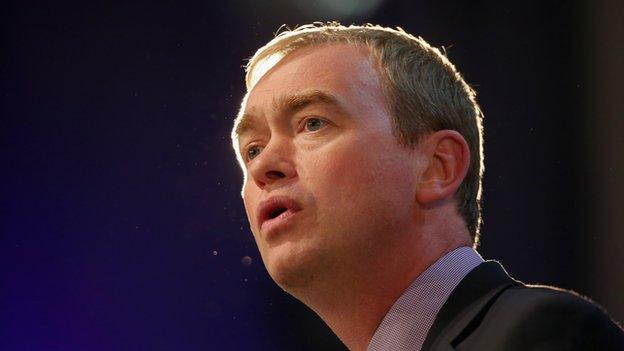Labour 'back to 1980s' after election loss - Mandelson
- Published
Chuka Umunna: "Labour can rebuild in five years if we make the right decisions now"
Lord Mandelson has warned Labour against a quick "beauty contest" for its leadership, saying it needs a profound rethink about its future.
The former business secretary said his party was in the same predicament as the late 1980s and had made "terrible mistakes" in strategy since 2010.
Meanwhile Liz Kendall became the first Labour MP to confirm she will stand.
Other likely contenders Chuka Umunna and Tristram Hunt also set out their visions and said they may stand.
However, backbencher Dan Jarvis - a former paratrooper tipped as a candidate - has ruled himself out.
The Barnsley Central MP, who recently remarried after losing his first wife to cancer, wrote in the Times, external: "It's not the right time for my family. My eldest kids had a very tough time when they lost their mum and I don't want them to lose their dad."
Earlier, Mr Umunna told the BBC's Andrew Marr Show Labour could win the next election "if it made the right decisions now" and said he wanted to play "the fullest part in rebuilding our party".
Shadow education secretary Tristram Hunt told BBC 5 live's Pienaar's Politics he was considering his options and wanted to be "one of the voices" contributing to the party's rebuilding process, saying Labour found itself in a "terrible hole".
In other election news:
David Cameron continues to form his new Cabinet, with Michael Gove named justice secretary
SNP leader Nicola Sturgeon says her party will be "the principal opposition" to the Conservative government and the prime minister "cannot act as if it is business as usual in Scotland".
Labour MP Tom Watson has announced on Twitter he is running to be deputy Labour leader, external. He says he wants to help "rebuild the party across the UK"
Tim Farron said he would decide "in the next few days" whether to put himself forward to replace Nick Clegg as Lib Dem leader
UKIP MP Douglas Carswell said he would support the government in Parliament when it does "sensible things" while attacking the Conservatives as "too patrician and corporatist"
Labour's Liam Byrne, external has admitted the "there is no money" note he wrote on leaving office in 2010 was a "crass mistake"
Watch BBC election coverage and follow latest reaction
Following Ed Miliband's resignation on Friday prospective Labour leaders have been setting out their views about why Labour lost and what it needs to do to win again.
Mr Umunna said the party was "down but not out" and rejected suggestions it could take a decade to recover. While it was "too early" to say whether he would stand for the leadership, he said he wanted to be involved in taking the party forward.
"We can do this in five years as long as we make the right decisions," he told the BBC's Andrew Marr. "You can change the leader but if you unless you get the message right we won't win."

Labour election rules
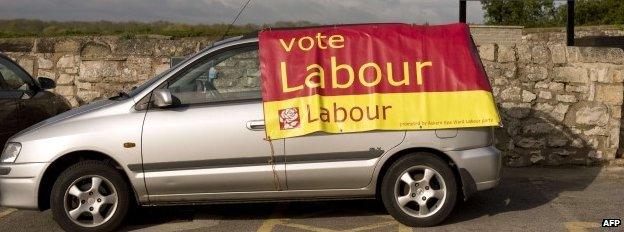
MPs wishing to stand as leader and deputy leader have to be nominated by 15% of their colleagues in the Parliamentary Labour Party to be eligible to stand. As Labour now has 232 MPs, this means prospective candidates must get at least 35 signatures.
The party's national executive committee is expected to set out the timetable for the election next week.
Under rules agreed last year, all Labour Party members, registered supporters and affiliated supporters - including union members - will be allowed a maximum of one vote each on a one member, one vote system. When the election is held, they will be asked to rank candidates in order of preference.
If no candidate gets 50% of all votes cast, the votes will be added up and the candidate with the fewest votes eliminated. Their second preference votes will then be redistributed until one candidate has 50% of all votes cast.

Both Mr Umunna and Mr Hunt suggested Labour had focused too much on those at the top and bottom of society and had too little to say to the millions of those in the middle.
"We often had a message which spoke to people on zero hours contracts and the minimum wage. But for middle-income voters, there was not enough of an aspirational offer there," Mr Umunna told Andrew Marr.
Mr Hunt told Sky News the "cumulative effect" of Labour's proposed tax changes, including its plan to raise the top rate of tax and introduce a mansion tax, "made people fearful about whether we were on their side".
As she confirmed she was running, Ms Kendall told the BBC's Sunday Politics that Labour had to set out something "genuinely new and positive rather than being the moaning man in the pub".
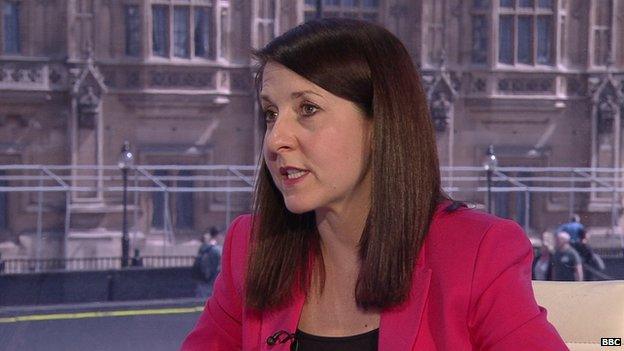
Liz Kendall told Sunday Politics she will be a leadership contender
Labour, she said, had to move on from the Blair-Brown era by "keeping our working class supporters while reaching out to Conservative supporters and Middle England".
Lord Mandelson, a key architect of Labour's three election victories under Tony Blair, said the party could have won the election but instead had lost "badly".
He suggested Labour "discarded" the centre ground in 2010 instead of "revitalising" its approach in the face of new economic times and thought it could "wave our fists angrily at the nasty Tories and wait for the public to realise how much they miss us".
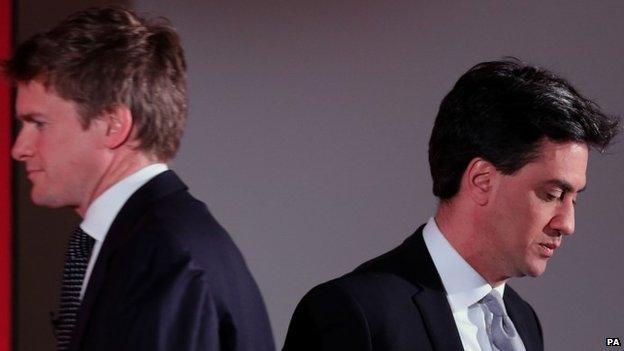
Mr Hunt praised his former leader but said the party was in a "terrible hole"
Comparing Labour's economic strategy to a polo mint "with a great hole in the middle", he said it gave the impression it was "for the poor, hate the rich, ignoring completely the vast swathe of the population who exist in between who do have values like ours".
"The scale of the challenge we face and the need for rethinking and re-modernisaton of the party is akin to the sort of the scale of challenge we faced in the late 1980s," he told Andrew Marr. "That is how serious it is."
"Far from embarking on a sort of short term beauty contest of leaders what we really need is a very through debate in the party of the sort that was denied us in 2010."
But Labour MP Ian Lavery told BBC Radio 4's The World This Weekend he did not believe Ed Miliband's agenda could be called too "left-wing" and the party, between 1997 and 2010, seemed to some to "forget" the working classes.
After his election victory, prime minister David Cameron is continuing to piece together his new Cabinet.
He has named Michael Gove as justice secretary, succeeding Chris Grayling who becomes leader of the House of Commons.
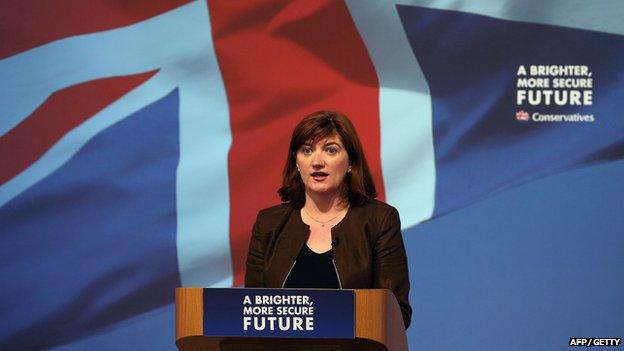
Nicky Morgan remains as education secretary and women's minister as cabinet appintments continue
Nicky Morgan has been reappointed as education secretary and minister for equalities while Mark Harper has been given the crucial job of chief whip - responsible for maintaining discipline among Conservative backbenchers.
Former Conservative leader Lord Howard has urged MPs to exercise "a considerable degree of self discipline", particularly in the run-up to a planned referendum on the UK's membership of the European Union in 2017.
And senior backbencher David Davis said the leadership should treat his colleagues "with respect".
David Cameron's latest Cabinet appointments follow the reappointment of Chancellor George Osborne, Home Secretary Theresa May, Foreign Secretary Philip Hammond and Defence Secretary Michael Fallon..
Mr Gove, a former chief whip and education secretary, will be in charge of implementing the Conservatives' pledge to scrap the Human Rights Act and replace it with a British Bill of Rights. He will also take on the role of Lord Chancellor.
A wider reshuffle is expected on Monday, with posts held by Liberal Democrats under the coalition yet to be filled.
2015 election results map
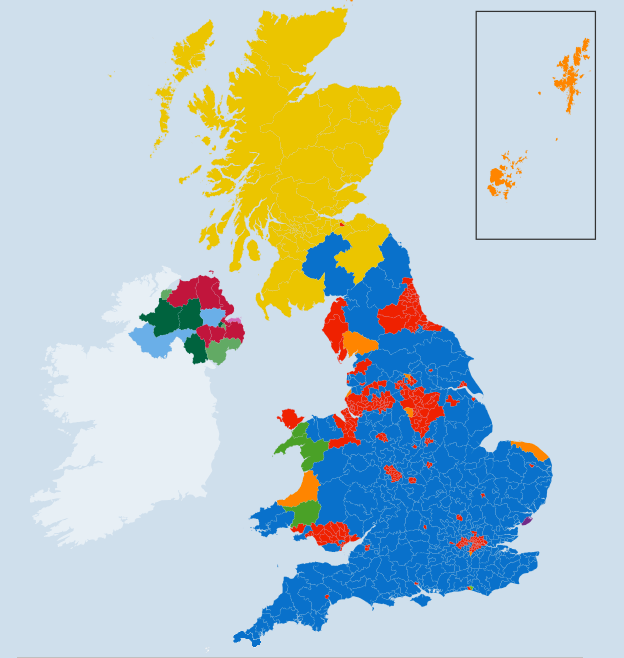
Conservatives won 331 seats and Labour 232 - followed by the SNP with 56 seats out of 59 in Scotland
- Published9 May 2015
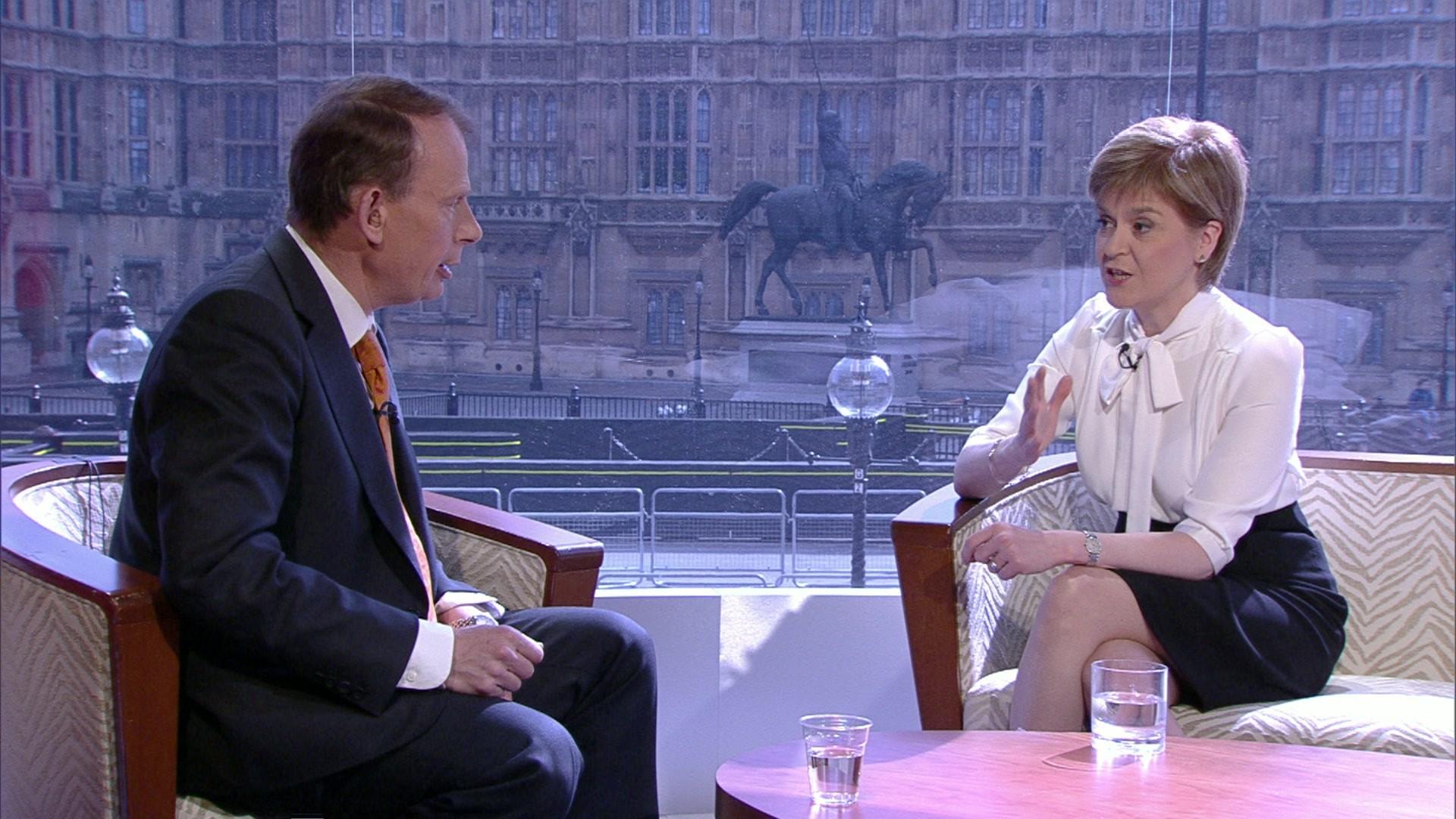
- Published10 May 2015
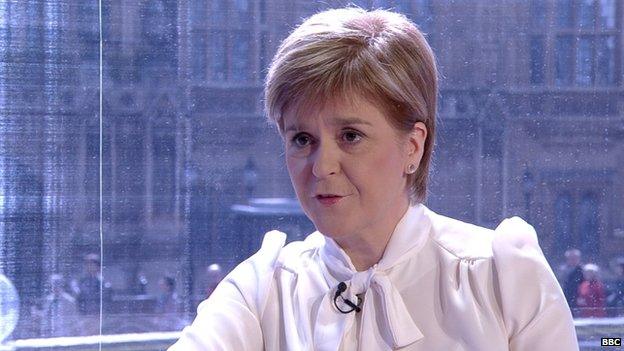
- Published9 May 2015
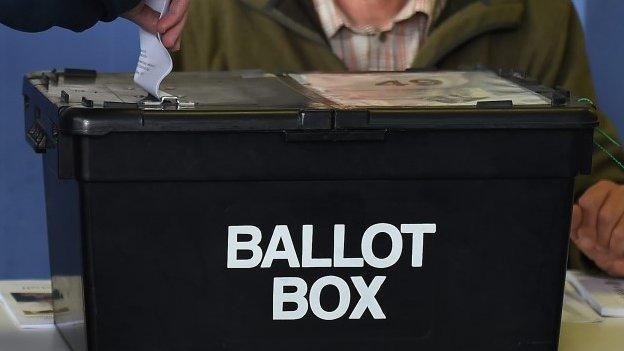
- Published10 May 2015
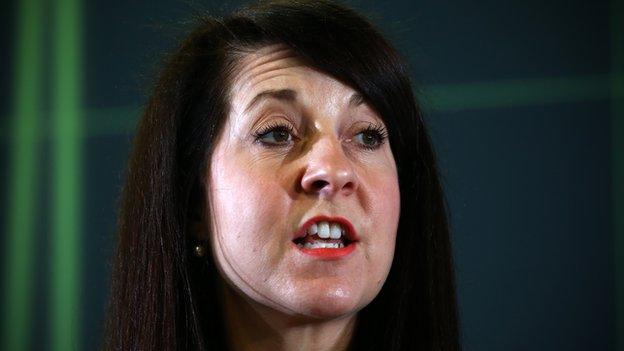
- Published8 May 2015
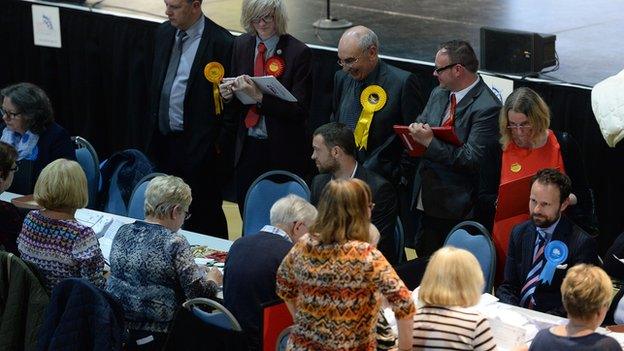
- Published9 May 2015
